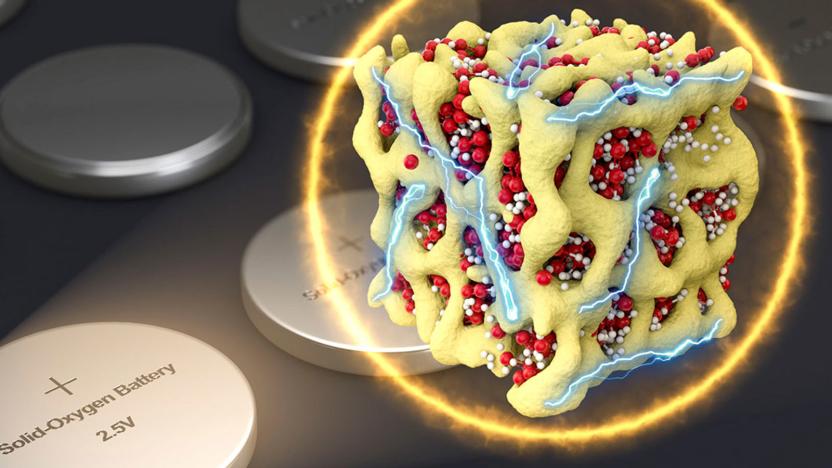PekingUniversity
Latest

Lithium-oxygen battery promises lighter electric cars
Lithium-air batteries are supposed to lead to lighter, longer-ranged electric cars thanks to their high power-to-weight output, but they have some showstopping flaws: they not only degrade rapidly, but waste a lot of energy input as heat. Neither is exactly ideal in a vehicle that's expected to last you several years and charge quickly. Scientists at MIT, Argonne National Laboratory and Peking University might have found a better way, though. They've engineered a lithium-oxygen battery that offers the light weight of lithium-air without its drawbacks.

Researchers discover the source of animals' natural compasses
For years, biologists have pondered how so many members of the animal kingdom -- from fruit flies and pigeons to sea turtles and wolves -- are able to navigate long distances apparently by sensing the Earth's magnetic field. Two theories have emerged in recent years: one that the ability derived from iron-binding molecules, the other that it came from a protein called cryptochrome. Now a team from China's Peking University have discovered that both theories describe complimentary aspects of the same bio-navigational system.

Boy gets the first 3D-printed vertebra implant
3D-printed implants just got one of their biggest real-world tests to date. Peking University Third Hospital has successfully implanted the first 3D-printed vertebra in a 12-year-old boy with cancer in his spinal cord. The bone substitute is made from titanium powder like many orthopedic implants, but promises to be both safer and longer-lasting than conventional replacements. Since it's designed to mimic the shape of the child's original vertebra, it doesn't need cement or screws to stay in place; healing should go faster, too. The construct is full of small holes that let natural bone grow inside, so it should eventually become a permanent, stable part of the spine that won't need adjustments at some point down the road.

Daily Update for Sept. 15, 2011
It's the TUAW Daily Update, your source for Apple news in a convenient audio format. You'll get all the top Apple stories of the day in three to five minutes, which is perfect for a quick review of what's happening in the Apple world. You can listen to today's Apple stories by clicking the inline player (requires Flash) or the non-Flash link below. To subscribe to the podcast for listening through iTunes, click here. No Flash? Click here to listen.

Apple Experience Center at Peking University riles students
Apple has constructed a promotional study center at Peking University, dubbed the Apple Experience Center. It's nice, with a glass enclosure and many Macs. Unfortunately for Apple, several university students are not happy about it. The center occupies a third-floor, former study area in the school's main library of about 430 square feet. Students will be able to use a variety of Apple goodies and order some of their own at a discount. It's a combination of academics and consumerism that's familiar to American university students, but has some Chinese students concerned. "It's totally against the spirit and environment of the library," said one student. "Apple should have discounts or give-back activities if they want self-promotion, other than introducing this commercial thing into a sacred place like this." Others fear that the draw of new Apple hardware will further crowd the library, where study space is already scarce. If you're a student at Peking University, let us know what you think of the Apple Experience Center. [Via LA Times]



